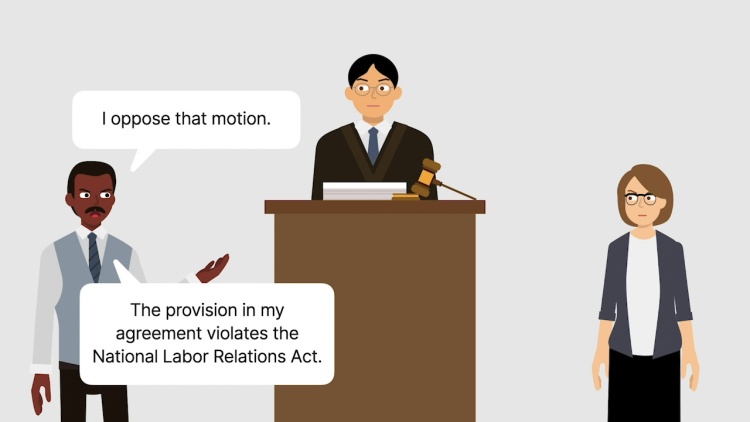Epic Systems v. Lewis
United States Supreme Court
138 S. Ct. 1612 (2018)

- Written by Sean Carroll, JD
Facts
Stephen Morris (plaintiff) entered into an employment contract with Ernst & Young LLP (defendant), providing that any disputes between the parties would be resolved through arbitration. The agreement stated that such arbitration would be on an individual basis and could not be with a group or class of other similarly situated Ernst & Young employees. Despite this clause, Morris filed a collective-action suit against Ernst & Young, claiming a violation of the Fair Labor Standards Act. Ernst & Young filed a motion to compel arbitration, based on the employment contract. The district court granted the motion based on the Federal Arbitration Act (FAA), which provided that arbitration agreements should be enforced according to their terms. The United States Court of Appeals for the Ninth Circuit reversed based on a saving clause in the FAA. The clause provided an exception to mandatory enforcement if a party could invalidate an arbitration agreement based on “such grounds as exist at law or in equity for the revocation of any contract.” The court of appeals held that Morris’s agreement violated the National Labor Relations Act’s (NLRA) provision allowing employees to collectively bargain. The United States Supreme Court granted certiorari.
Rule of Law
Issue
Holding and Reasoning (Gorsuch, J.)
Concurrence (Thomas, J.)
Dissent (Ginsburg, J.)
What to do next…
Here's why 907,000 law students have relied on our case briefs:
- Written by law professors and practitioners, not other law students. 47,100 briefs, keyed to 996 casebooks. Top-notch customer support.
- The right amount of information, includes the facts, issues, rule of law, holding and reasoning, and any concurrences and dissents.
- Access in your classes, works on your mobile and tablet. Massive library of related video lessons and high quality multiple-choice questions.
- Easy to use, uniform format for every case brief. Written in plain English, not in legalese. Our briefs summarize and simplify; they don’t just repeat the court’s language.





